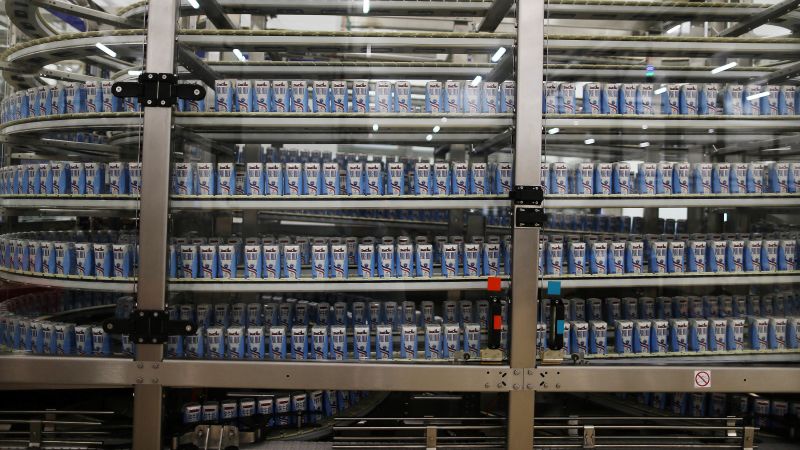Beijing is currently investigating whether dairy producers in the European Union are benefiting from unfair government subsidies. China’s Ministry of Commerce has stated that local dairy producers requested the probe, citing 20 different subsidy programs that may be benefiting the EU dairy industry. These subsidies range from financial support for farming equipment to environmental and administrative subsidies. An initial review of the evidence has found sufficient grounds for an anti-subsidy investigation, with the investigation expected to last up to 18 months. The EU is one of the world’s largest dairy exporters, with China being the second largest destination for its skim-milk and whole-milk powders.
The EU has confirmed that it will be imposing additional tariffs on most electric vehicles imported from China, which is seen as a response to China’s investigation into EU subsidies benefiting dairy producers. This move comes after a year of back-and-forth trade disputes between Beijing and Brussels, with the EU previously launching investigations into China’s state support for electric vehicle makers and wind turbine companies. In retaliation, China has launched anti-dumping investigations into brandy and pork products from the EU. The European Commission has stated that it will closely follow Beijing’s investigation into EU dairy subsidies and intervene if necessary to ensure that the probe complies with World Trade Organization rules.
The ongoing trade disputes between China and the EU highlight the complexities and tensions in global trade relationships. Both sides are accusing each other of benefiting from unfair subsidies, leading to retaliatory measures such as additional tariffs and anti-dumping investigations. The EU is determined to defend the interests of its dairy industry and its common agricultural policy, while China is focused on protecting its domestic industries from what it perceives as unfair competition. The trade row between Beijing and Brussels is just one example of the broader challenges faced by countries as they navigate the complexities of international trade and seek to protect their own markets and industries.
The EU’s decision to impose additional tariffs on Chinese electric vehicles is likely to have significant implications for both parties. This move could lead to higher prices for consumers in both the EU and China, as well as potential job losses in the electric vehicle industry. It could also further escalate tensions between the two trading partners, leading to a deepening of the trade dispute and potentially impacting other sectors beyond dairy and electric vehicles. The EU and China will need to carefully assess the potential impact of their trade actions and consider how best to resolve their differences in a way that promotes fair and balanced trade between the two parties.
The trade dispute between China and the EU is part of a broader trend of rising protectionism and trade tensions globally. As countries seek to protect their domestic industries and markets, they are increasingly resorting to tariffs, subsidies, and other protectionist measures that can harm international trade and economic growth. The ongoing conflict between Beijing and Brussels underscores the importance of upholding international trade rules and mechanisms, such as those established by the World Trade Organization, to prevent the escalation of trade disputes and promote fair and open trade relations between countries. Both China and the EU will need to work together to find a resolution to their trade disagreements that is mutually beneficial and respects the rules of international trade.













